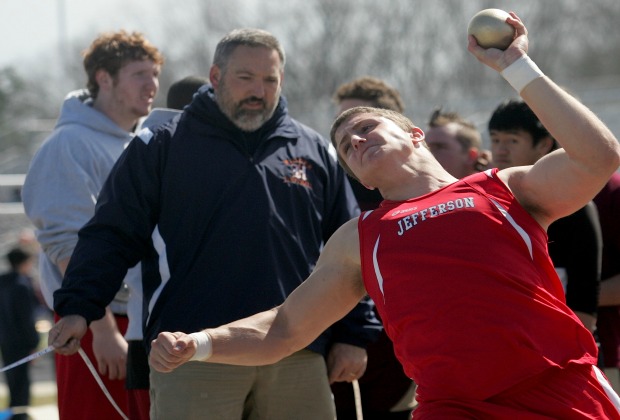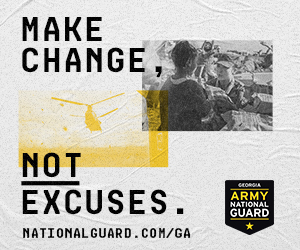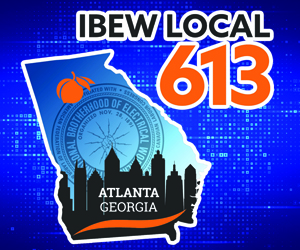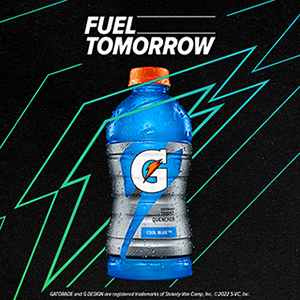
Volunteers who work behind the scenes in any event are often unsung. They are always, however, vital to the execution of the event, no matter what type of occasion it may be. The Georgia Olympics (the GHSA boys track and field state championship meet), are no different, as several volunteers congregate annually at Jefferson to make sure the meet runs as smoothly as Herschel Walker used to glide down the track. Men and women with varying backgrounds and fields of expertise have donated their time to be here, and many of these meet officials have been coming since the inception of the Georgia Olympics in 1972.
The meet officials oversee specific events, such as the pole vault, while others have more of a general role in monitoring conduct and handing out awards. One thing the meet officials have in common is they have been asked back by the Georgia Olympics for multiple renditions of the annual affair. One of those gentlemen is Scott Tolbert, a Jefferson attorney who has been volunteering at the meet since high school.
“I was a pole vaulter at Jefferson,” said Tolbert. “I started officiating in 1984. Coach (Jack) Keen asked me to assist at the pole vault event and I did. After a few years of college and law school, that got him a little more comfortable in my abilities to be an official and Coach Keen elevated me to head pole vault official. So that’s basically what I have been doing for 30 years.”
Other officials, such as Bolling DuBose, Gary Glenn, Raymond Hobby, Dennis Horne, William Howington, Richard Patterson, Scott Tolbert, Mike Van Winkle and Jeff Whitfield have been working the Georgia Olympics for as long or longer than Tolbert. All share one common reason for coming back: the enjoyment they get from officiating one of the most unique high school athletics events in the nation.
“The camaraderie amongst the folks, it takes a lot of people to run off that state track meet,” said Howington, an official since 1972. “(Jefferson is) a small town and you know pretty much everybody and it’s the same ones every year pretty much. I enjoy the whole meet atmosphere. You have all the great athletes from every classification in one spot.”
Morris Bryan, Jr. and brother Tom partnered with the city of Jefferson to get the event rolling in 1972, and it has been a raging success ever since. The meet is now woven into the fabric that is Jefferson.
“When it first started in Jefferson, it was kind of an oddity,” said Howington. “But it’s grown every year and it’s become a point of pride for the people of Jefferson. It’s a lot of state championships going on in one spot.”
While Jefferson High School has been successful in many levels of high school athletics, most especially its wrestling program which boasts a whopping 29 state titles, the town of Jefferson has become synonymous with the Georgia Olympics.
MEMORABLE MOMENTS …
Meet officials that have been here as long as Howington have witnessed some of the nation’s best athletes. Since 1972, Roger Kingdom, Sam Graddy, Herschel Walker and Reese Hoffa, among many others, have graced the Georgia Olympics with their talents before representing their country in the international Olympics. While seeing these elite athletes in action was a thrill for those in attendance, some of the more memorable events were from lesser-known athletes.
“(Jefferson pole vaulter) Chris Keen was far and away the best by several feet and it was just an amazing sight to watch him vault,” said Tolbert. “His approach to the pole vault was unbelievable to watch.”
Keen competed in the Georgia Olympics from 1985-1988 for the Dragons before accepting a football scholarship to Florida State. Keen was also a state champion wrestler in high school.
Hiawatha Berry is a name not known by many, but his accomplishments at Jefferson provoke mythical comparisons. Berry was a star athlete at Winder-Barrow in the mid-80s who went on to play football for the Georgia Bulldogs, but not before sending shockwaves through the state of Georgia’s track and field community.
“Hiawatha Berry was an unbelievable discus thrower,” said Tolbert. “Where we were, stationed at the pole vault, we had to watch for his discus because it would fly over there where we’re at. He was throwing the discus onto the track. It was incredible what he’d do.”
Berry’s discus throw of 197 feet, 10 inches still stands as the state’s all-time record in the event. The throw not only shattered previous records, it left indelible memories in those who saw it.
“I was quoted in the AJC when Hiawatha Berry broke the state discus record, I told them I thought we’d have to splice the tapes together to measure it,” said Gary Glenn, who has been involved in the Olympics since the beginning. “It was just a phenomenal throw.”
Out of all the meet officials interviewed for this story, each of them recalled Berry’s throw. But in addition to Berry’s mammoth discus throw, one of the more famous athletes to compete in Jefferson made news in a sport many didn’t think he competed in.
“Roger Kingdom was a great hurdler in the state of Georgia,” said Dennis Horne, an official since 1972. “I had him in the discus. Not big, about 5-8, 160 pounds, and he ends up winning the discus.”
It does not come as a surprise, to find out that Kingdom, who as Horne stated was a champion in hurdles, was the overall points leader for two consecutive Georgia Olympics (1980 and 1981) due to his mastery of not one, but multiple events.
Tolbert noted that while there has been a consistent flow of great athletes through Jefferson over the years, a few things have changed.
“Better athletes, stronger athletes and, probably more than anything, better coaching,” he noted. “I think the coaches have done a heck of a job in coaching their competitors now.”
Glenn said that while watching great athletes compete is a major draw to the games, seeing the honorary meet directors speak is awe-inspiring.
“I enjoyed watching Jessie Owens speak at one of the early (Georgia Olympics),” he said. “He was a great sprinter and long jumper himself.”
MEN AT WORK …
While watching the games as well as famous guests, officials still have a job to do. And at the Georgia Olympics, they fulfill their roles very well. Many track and field meets take place across the state throughout the school year, but the state meet is by far the most important – and credible – as state records can only be set and broken at the Georgia Olympics.
“We know we’ve got good officials,” said Glenn. “We know weather conditions are going to be monitored and we know things are going to be done right. We have people with vast experience running these things. One of the main things is seeing all the people of Jefferson coming together to do this, and they’ve been doing it since 1972.”
Each official has his own role to play. While the meet official at the pole vault has a set of rules to enforce, another at the track has an entirely different set of things to look for.
“What you look for mostly is the tape on the pole, the weight rating on the pole,” said Tolbert of his role as pole vault official. “A competitor is not supposed to have a pole rated lighter than his body weight. That is something we look for. The ability for the competitors not to get hurt is something else to (monitor) as well.”
Howington, meanwhile, has a much different job at the triple jump pit.
“In the triple jump, you have to watch and make sure they don’t take off in front of the toe board. And they have to land on the foot they took off from, they have to step, then jump into the pit and they can’t come out of the pit backwards,” he explained.
Glenn is at the shot put; a short, but intense field event that sometimes causes competitors to lose control of their emotions.
“I remember one time we had to disqualify a kid for uttering an expletive very loudly twice, and the head meet official happened to be standing right by me when he did that,” Glenn remembered. “It wasn’t muttered under his breath, so the ruling was we had to disqualify him.”
Meet officials, regardless of their individual functions, have an important role in the Georgia Olympics each year. Without their honest eyes and judicious minds, the much-anticipated event would not mean as much to the people of Georgia. As it stands, however, the job the officials carry out each year remains one of the main reasons why the Georgia Olympics is one of the most respected meets in all of high school sports.








































































